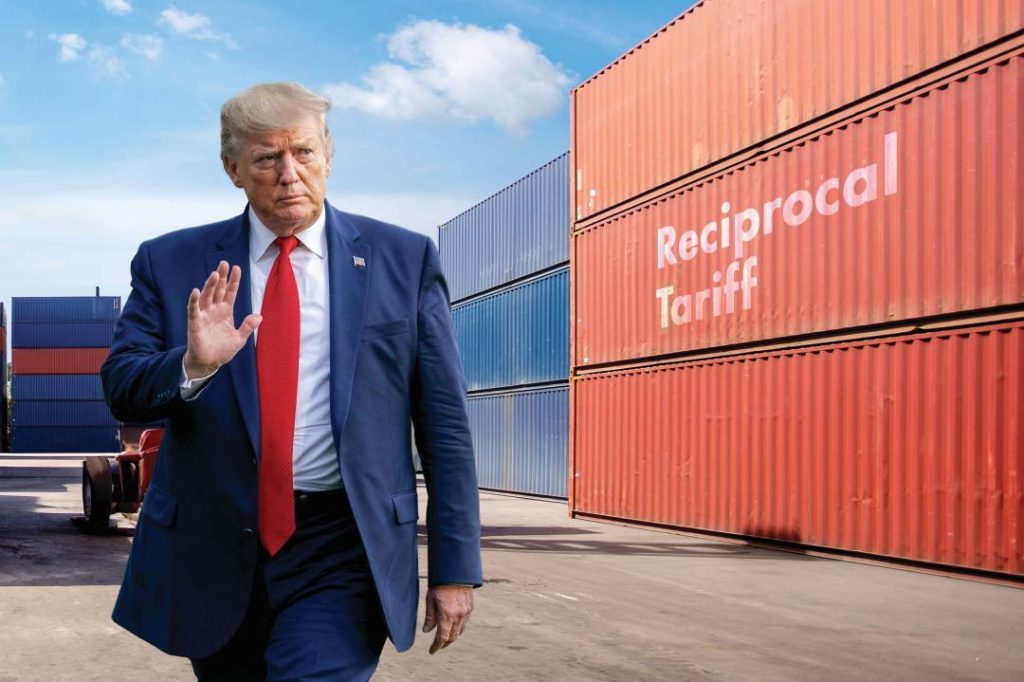
The Great Tariff War: Disruption, Diplomacy, & the Future of Trade
The global trade landscape has been witness to unprecedented upheaval in recent years, with the United States and China engaging in a high-stakes tariff war that has sent shockwaves across the world. As the two economic giants continue to spar over trade tariffs, other nations are seizing the opportunity to chart their own trade courses. Among them is India, which is emerging as a potential alternative to China amid shifting global supply chains.
In a bid to strengthen its position as a global manufacturing and logistics hub, India is actively courting foreign investment and promoting its business-friendly policies. According to industry experts, this is an opportune moment for India to capitalize on the disruption caused by the tariff war and carve out a significant share of the global market.
The tariff announcement comes amid ongoing trade negotiations with the US, aiming for a bilateral trade agreement targeting a $500 billion trade goal by 2030. The agreement, if successful, would not only boost trade between the two nations but also create new opportunities for Indian businesses.
The Great Tariff War: A Brief Overview
The tariff war between the US and China began in 2018, when the Trump administration imposed tariffs on around $50 billion worth of Chinese goods in response to alleged intellectual property theft and forced technology transfer. China retaliated by imposing tariffs on American goods, including soybeans, pork, and aircraft.
The trade tensions escalated in 2019, with the US imposing additional tariffs on Chinese goods worth $200 billion. China, in turn, imposed tariffs on American goods worth $60 billion. The tariff war has had a significant impact on global trade, with many countries caught in the middle.
The Impact on Global Trade
The tariff war has far-reaching implications for global trade, affecting not just the US and China but also other countries that depend on trade with these two nations. The disruptions caused by the tariff war have led to:
- Supply Chain Disruptions: The tariff war has caused supply chain disruptions, as companies struggle to adjust to the new trade landscape. This has led to increased costs, delays, and inventory management issues.
- Increased Costs: The tariffs imposed on both sides have increased costs for companies, making it difficult for them to maintain their profit margins.
- Job Losses: The tariff war has led to job losses, particularly in industries that rely heavily on imports and exports.
- Economic Uncertainty: The tariff war has created economic uncertainty, making it difficult for businesses to plan for the future.
India’s Opportunity
Amid the chaos caused by the tariff war, India is emerging as a potential alternative to China. The country’s business-friendly policies, skilled workforce, and strategic location make it an attractive destination for foreign investment.
India’s manufacturing sector, in particular, is poised for growth, with the government’s “Make in India” initiative aimed at promoting domestic manufacturing and attracting foreign investment. The country’s logistics infrastructure is also being upgraded, with the government investing in modernizing ports, airports, and roads.
Diplomacy and Trade Agreements
The tariff war has highlighted the importance of diplomacy and trade agreements in maintaining global trade relations. The US and China are engaged in ongoing trade negotiations, with the aim of reaching a bilateral trade agreement.
India, too, is actively engaging in trade negotiations with other countries, including the US and the European Union. The country is seeking to strengthen its trade ties with these nations and promote its business-friendly policies.
The Future of Trade
The tariff war has disrupted global trade patterns, but it has also created opportunities for countries like India to emerge as alternative manufacturing and logistics hubs. As the world becomes increasingly interconnected, the need for diplomatic efforts to maintain global trade relations has never been more pressing.
In conclusion, the great tariff war has sent shockwaves across the globe, disrupting global trade patterns and creating uncertainty for businesses. However, amidst the chaos, India is emerging as a potential alternative to China, with its business-friendly policies and strategic location making it an attractive destination for foreign investment.
As the world navigates the complexities of the tariff war, diplomacy and trade agreements will play a crucial role in maintaining global trade relations. India’s emergence as a global manufacturing and logistics hub will depend on its ability to capitalize on the opportunities created by the tariff war and promote its business-friendly policies.
News Source:
https://www.logisticsoutlook.com/supply-chain/the-great-trump-tariff-war






